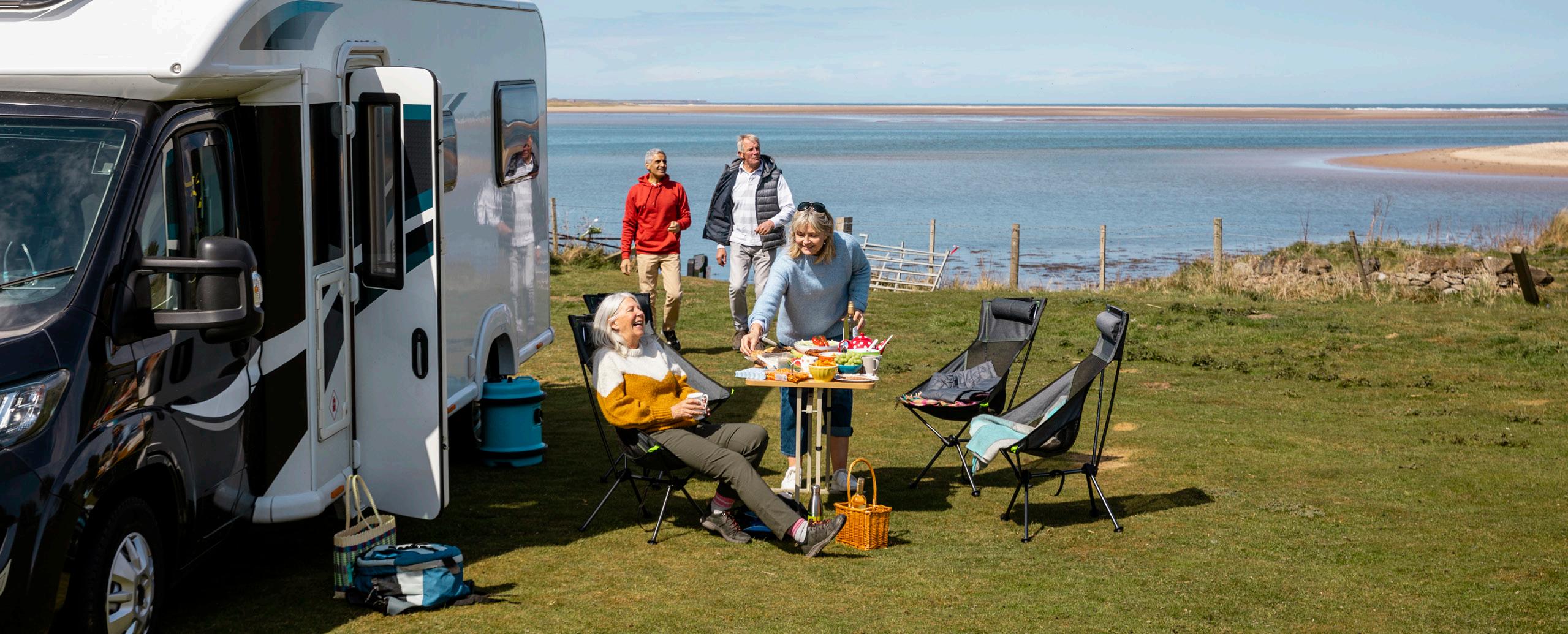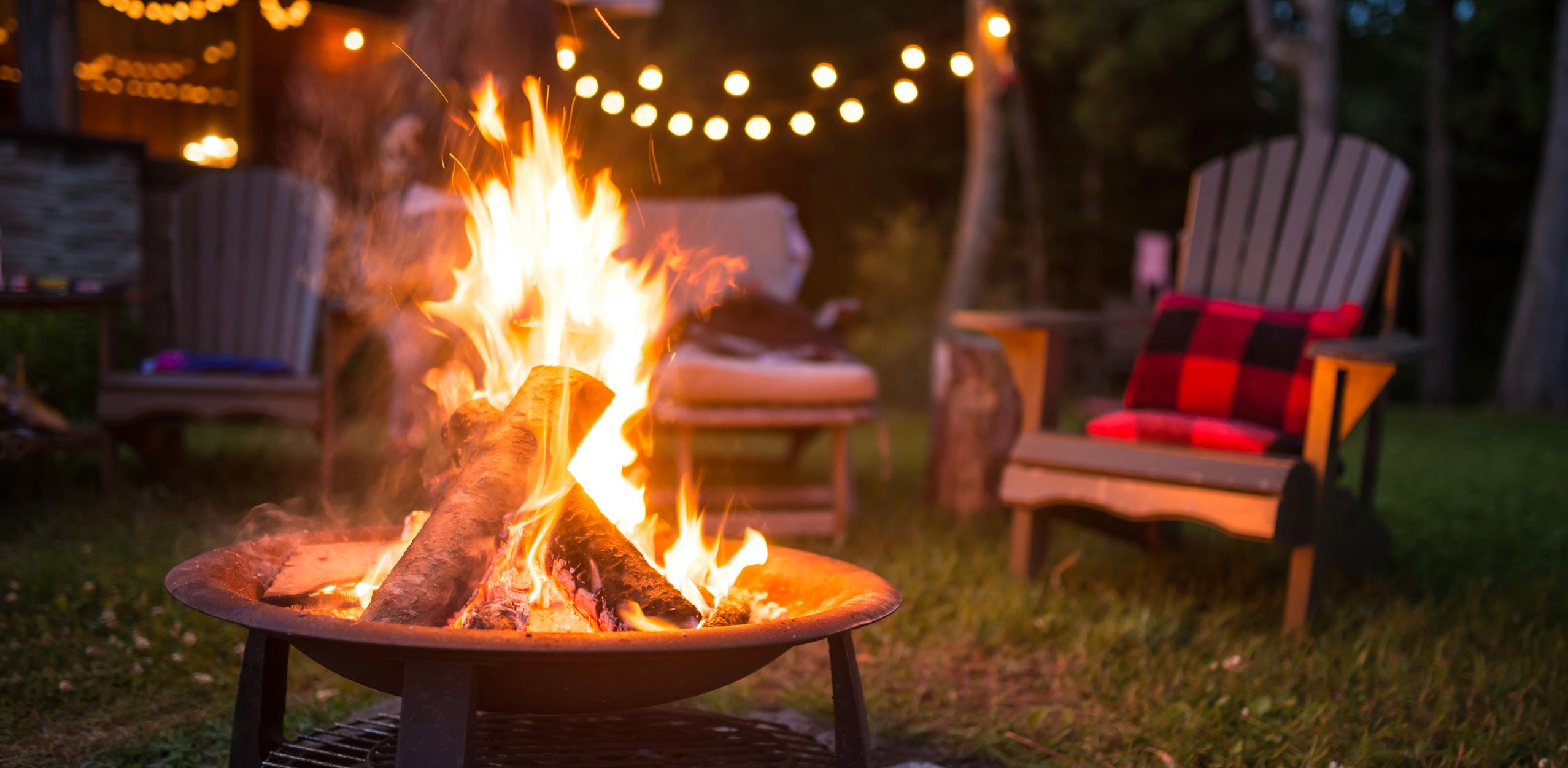
3 minute read
Vacation Fire Safety
By Cara Pardy Inspector, Fire Prevention Division St. John’s Regional Fire Department
As you look forward to summer and make vacation plans, keeping fire safety in mind will help ensure you have an enjoyable stay and that your home away from home is safe for you and your loved ones.
Advertisement
Whether you are staying in a hotel or a tent, here are some tips to keep your family safe during your holiday this summer.
Bed & Breakfasts and Airbnbs
Check for working smoke alarms in every sleeping room, outside each separate sleeping area and on every level of the dwelling.
Make sure everyone staying there knows: • where the portable fire extinguishers are; • how to call 911 or the local emergency number; • the address of the home; and • two ways to escape from every room.
Hotels & Motels
Every hotel or motel room door has an evacuation plan posted on the back, inside the room; familiarize yourself with it including your path to the nearest exit.
Count the number of doors between your room and the nearest two fire exits. If you must evacuate in heavy smoke and can’t see, you can feel along the walls and doors to countdown to your exit.
When in your room, particularly while sleeping, keep your room key by your bed and take it with you if there is a fire. If you cannot evacuate the building, you may have to return to your room.
As always, if you hear an alarm, leave the room and close all doors behind you. Use the stairs to get out; never use an elevator in the case of fire.
Motorhomes & Campers
Hitting the road to explore can be a freeing and relaxing experience – but don’t let fire safety take a back seat to your adventures.
Make sure you have working smoke and carbon monoxide alarms installed. Most recreational vehicles have refrigerators, furnaces, ovens and stovetops that often use propane; have your propane system inspected annually.
All guests and particularly overnight guests to your home on wheels should know two ways out; make sure your windows and doors open properly.
Do not keep portable heaters and lanterns on while sleeping.

Camping
The lowest-impact exploring can have the greatest fire hazards. When you are tenting or backcountry camping you are most likely your own fire department - take care of yourself and the country you love to explore!
Make sure your tent is made of flame-resistant fabric. Inside your tent use only battery-operated camping equipment such as flashlights or lanterns.
NEVER use fuel-fired heaters or lanterns, matches, candles, open flames or a barbecue grill inside a tent as they can produce carbon monoxide. Always cook outside.
Check with local authorities on open-air burning regulations. Choose a campfire location that is downwind and at least three metres away from your tent and belongings. Build your fire at least three metres away from standing trees, stumps, logs, and at least 15 metres away from forest debris and buildings. Get rid of any debris like twigs and leaves within a 3-metre diameter around the campfire site.
Be like a Scout or Girl Guide and avoid the use of liquid fire starter. Do not have fires in windy conditions (wind speed 30km/hr or more). Keep your fire at a manageable size, never leave it unattended or let children play around it and always have a bucket of sand or water and a shovel nearby.
Have no doubt and dout it
When you are ready to extinguish your campfire:
• Allow the wood to burn completely to ash.
• Pour lots of water on the fire, drown all embers.
Stir the campfire ashes and embers with a shovel; make sure everything is wet and they are cold to the touch.
• If you do not have water, use dirt. Mix enough dirt or sand with the embers. Continue adding and stirring until all material is cool.
• Remember: if it’s too hot to touch, it’s too hot to leave! Do not bury the fire as it will continue to smolder and could catch roots on fire that will eventually get to the surface and start a wildfire.
Contact us
Fire Prevention Division 576-3905 fireprevention@stjohns.ca sjrfd.ca @SJRFD @SJRFD_NL










